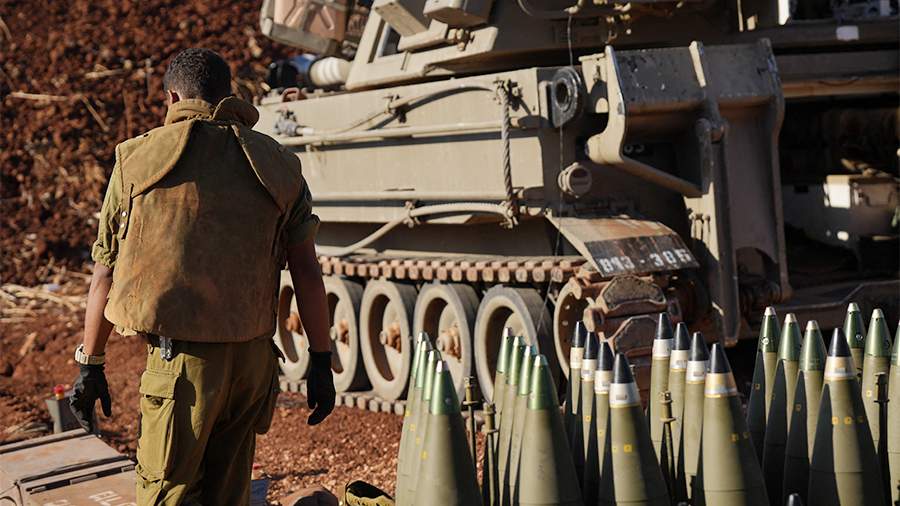The ceasefire agreement between Israel and Hezbollah has entered into force. What the media are saying
- Новости
- World
- The ceasefire agreement between Israel and Hezbollah has entered into force. What the media are saying

Israel and the Lebanese Shiite movement Hezbollah have reached a ceasefire agreement in Lebanon. The armed forces of the Israel Defense Forces (IDF) are to be withdrawn from the Arab state and will be replaced by the Lebanese army. Compliance with the agreement will be monitored by the US and France. What the media write about the suspension of a major conflict in the Middle East - in the Izvestia digest.
Financial Times: A ceasefire has come into force in Lebanon
On November 27, at 4 a.m. local time, a cease-fire agreement came into force in Lebanon, which could put an end to more than a year of fighting between Israel and Hezbollah. The agreement was announced by U.S. President Joe Biden after it was approved by the Israeli government. The deal must also be approved by Lebanon's interim government.
Financial Times
Under the terms of the deal, the Israel Defense Forces will be gradually withdrawn from Lebanon over 60 days, to be replaced by the Lebanese army. "Hezbollah, the Lebanese paramilitary group, will be banned from rebuilding its infrastructure in the south of the country. The Iranian-backed group's fighters are expected to move mainly north of the Litani River, which runs up to 30 kilometers from the Israeli-Lebanese border
Biden said the US and France would work with Israel and Lebanon to implement the deal. Israeli Prime Minister Benjamin Netanyahu said the IDF would resume fighting if Hezbollah violated the agreement. In total, more than 3,700 Lebanese and 140 Israelis have been killed in the conflict. 1 million Lebanese and 60,000 Israelis have fled the war zone.
The Washington Post: Biden wants to expand the agreement to the Gaza Strip
Biden tried to capitalize on the announcement of a cease-fire between Israel and Hezbollah by also calling for an end to fighting in the Gaza Strip. He made the latest attempt to forge a broader Middle East peace deal with less than two months left in his term.
The Washington Post
The agreement would normalize relations between Israel and Saudi Arabia, pave the way for a Palestinian state and include a security pact and economic guarantees that the United States would provide to Riyadh
The Biden administration says the outlines of the deal were ready as early as October. U.S. President-elect Donald Trump will have to oversee the agreement, which he had no part in negotiating. He has previously told Netanyahu that he wants to end conflicts involving Israel, while selecting several pro-Israel politicians who oppose the creation of Palestine to his administration.
Al Jazeera: Beirut bombardment went on until the ceasefire
Israeli bombardment of Lebanon continued between the announcement of the ceasefire and its actual beginning. Warplanes struck Beirut's southern suburbs on the evening of November 26.
Al Jazeera
Seven people were killed and 37 injured in Israeli attacks on a building in Beirut housing displaced people, the National News Agency reported, citing Lebanon's health ministry
The Israeli military said 20 targets were hit within 120 seconds in Beirut. A day earlier, Israeli strikes killed 31 people, mostly in southern Lebanon.
BBC News: in Israel do not agree with the ceasefire
A poll conducted on November 26 showed that 80% of Netanyahu's supporters oppose the deal with Hezbollah. Residents of northern Israel, who have been evacuated from their homes, are particularly outraged. Meanwhile, nationally, 37% support the ceasefire, while 32% oppose it.
BBC News
Shelly, an English teacher in Shlomi, said the ceasefire was an "irresponsible and hasty political decision". Rona Valensi, evacuated from Kibbutz Kfar Giladi on October 8 last year, said she wanted to return home and that a ceasefire was necessary, but the thought of Lebanese residents returning to neighboring villages causes her "a real sense of anxiety and fear."
The residents of Kfar Giladi fear that Hezbollah will infiltrate neighboring Lebanese villages and establish its network there. They see no other option but to destroy these villages and withdraw the population from there. According to them, the Lebanese or American armies will not restore security at the border, Israeli forces must do that.
Bloomberg: oil prices stabilize amid the agreement
Reduced geopolitical risks following the agreement between Israel and Hezbollah stabilized oil prices amid signs that OPEC+ would again postpone restoring some production, which was expected to raise the cost of crude on the global market. Brent crude dipped below $73 a barrel after losing about 3 percent in the previous two sessions in anticipation of the truce, while WTI crude held above $68.
Bloomberg
Oil has been trading in a narrow range since early last month, pushed by competing bullish and bearish signals. There are a number of catalysts that could influence the market's next move, including Trump's policies and geopolitical risks related to supply from Russia and Iran next year
The OPEC+ meeting will take place next weekend. Delegates said they will hold talks on delaying a decision to restart oil production in January. They want to delay production for several months because of signs of oversupply.
Переведено сервисом «Яндекс Переводчик»

